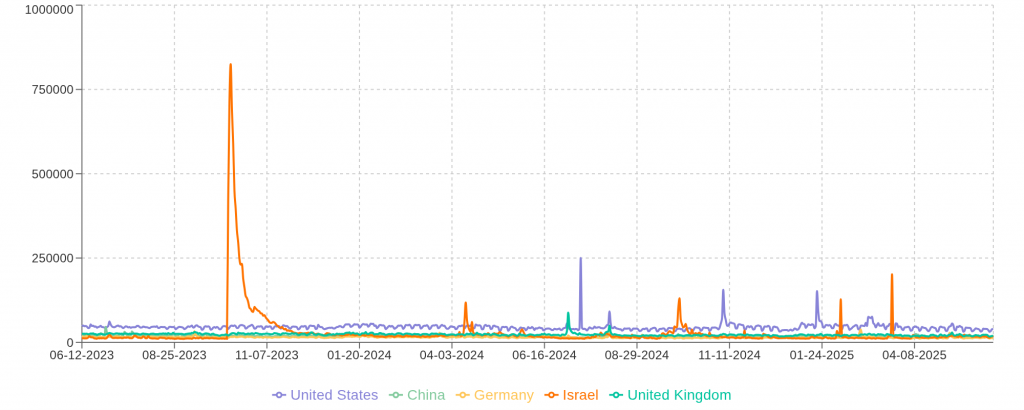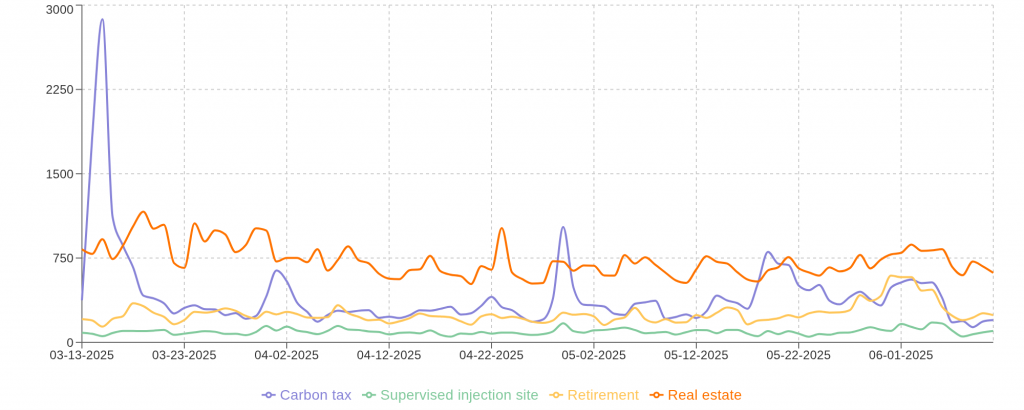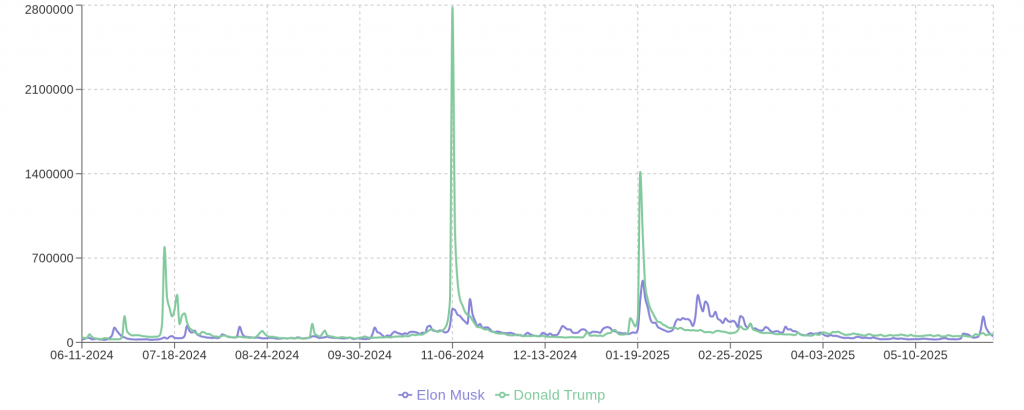I’m excited to share a new project I’ve just released: Wikisplash.com. It’s a web-based tool that uses Wikipedia data as a proxy for public attention – at both the global and national level.
Wikisplash is like Google Trends for who’s looking at Wikipedia pages.
Some of you know that, alongside my interest in politics, I’m also a web and software developer. I originally shared this weekend project in a group chat with colleagues via a development URL. One noted it was useful enough to deserve a proper home – so Wikisplash.com was born.
What is Wikisplash?
Wikipedia has articles on nearly every named entity – people, places, and things. Wikisplash lets you see the number of pageviews those articles have received, going back years.
Because Wikipedia links often appear at the top of Google search results, its pageview stats serve as a reasonable proxy for global search interest. This is the case not only on Wikipedia but indirectly through Google as well.

As I’ve suggested, Google Trends does something similar though in a more limited way. Reflecting actual Google search traffic, Google Trends shows search interest only as relative percentages. Wikisplash shows absolute pageviews by date. That makes it easier to compare attention over time and across topics.
Why trending topics matter
If you work in politics, media, or marketing, you already know that attention is insight. Tracking what people are curious about helps you stay ahead of conversations.
Even though writing for SEO has become less of a newsroom priority, search interest remains a strong signal of public curiosity. Editors, strategists, and political communicators have always used trending topics as a cheat code to tap into what people care about – whether via Google or social platforms like X.


Wikisplash breaks down trending topics by recency “yesterday”, “last 7 days”, and “last 30 days”, while also doing this by country. If you really want to be specific, you can look at global trends by the language of Wikipedia (en.wikipedia.org vs fr.wikipedia.org)
I’ve been fascinated by predictive analytics for some time, for the same reason as anyone would be – getting to the future before others confers its obvious advantages. Website newsletters like Exploding Topics curate trending topics that interest its authors. Tools like Ahrefs and SEMrush are mostly used for SEO, though more are using these sites to anticipate market demand and social direction.

I’ve also added easy ways to share this data and visualizations of the same. You can easily download chart images, embed them on your own website, or link to the topics on social media.

Wikispash aims to provide tools to interpret the raw data so you can come to your own conclusions and for your own purposes. I hope that it is useful for you! Tell me what you think of it on X/Twitter.
Wikisplash is for trending topics! – Wikisplash.com
